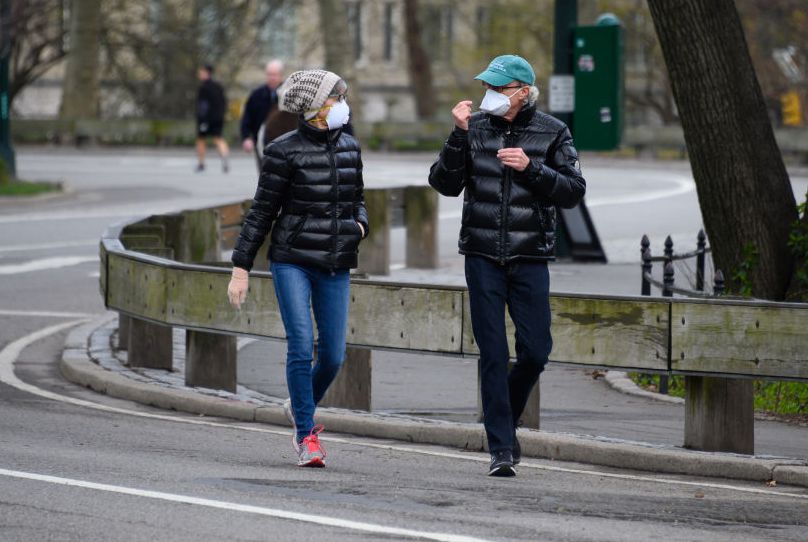Social Distancing and Masks Are Effective in Reducing the Spread of Coronavirus, Study Confirms


Social distancing and wearing a mask do make a difference against the new coronavirus, a new study confirmed.
As businesses and offices begin to reopen while COVID-19 remains in the U.S., continuing to wear masks and stay around six feet apart from other people will help to reduce the virus’ spread.
Researchers in Canada and Lebanon reviewed 172 studies from 16 different countries about different measures that reduce the spread of COVID-19, along with other viruses including SARS and MERS.
Their findings, published in the medical journal Lancet, provided “clarity” that social distancing and mask-wearing was making a difference, study co-author Dr. Derek Chu, a clinical scholar of medicine at McMaster University in Ontario, Canada, told TODAY, despite push-back from some Americans who don’t want to wear a mask.
“Even though people have made conjectures about, ‘Should we wear a mask?’ … the problem has been that uncertainty,” he said. “CDC is saying wear a mask, but other people have countered that very rapidly, saying, ‘It's more harmful than good.’ ”
Their research, however, shows otherwise. By keeping a physical distance from another person of 1 meter, or 3.3 feet, the chance of transmission falls to 12.8 percent, and a distance over 3.3 feet reduces the chance to 2.6 percent. And the CDC-recommended distance of six feet is likely even more effective, they found.
Masks also make a significant difference. Chu and his colleagues found that the risk of transmission went down 85 percent when people wore a mask, and that N95 masks did the best job of reducing virus spread. Those masks, which are fitted tightly to the face and have a respirator, were 96 percent effective, while paper surgical masks were 77 percent effective.
“For health-care workers on COVID-19 wards, a respirator [N95 mask] should be the minimum standard of care,” an accompanying editorial in Lancet on the study said. “This study by Chu and colleagues should prompt a review of all guidelines that recommend a medical mask for health workers caring for COVID-19 patients.”
Chu told TODAY that surgical or cotton masks with 12 to 16 layers of fabric were also effective. He said that it makes more sense for the general public to stay away from wearing respirator masks as they are less likely to wear them correctly.
"Respirators are best used in the health care setting because they’re uncomfortable to wear, and if you’re not going to wear it properly, then it defeats the purpose,” he said.
The researchers also found that wearing eye protection, while not officially recommended by health officials, offered some protection. The chance of virus transmission without eye protection is 16 percent, and with it, that number goes down to 5.5 percent.
Overall though, Chu said, these preventive measures are not 100 percent effective, and need to be combined with proper hygiene.
“No single intervention on its own made an individual completely impervious to transmission," he said. "We can’t neglect basic measures such as hand hygiene."
As information about the coronavirus pandemic rapidly changes, PEOPLE is committed to providing the most recent data in our coverage. Some of the information in this story may have changed after publication. For the latest on COVID-19, readers are encouraged to use online resources from CDC, WHO, and local public health departments. PEOPLE has partnered with GoFundMe to raise money for the COVID-19 Relief Fund, a GoFundMe.org fundraiser to support everything from frontline responders to families in need, as well as organizations helping communities. For more information or to donate, click here.
Source: Read Full Article